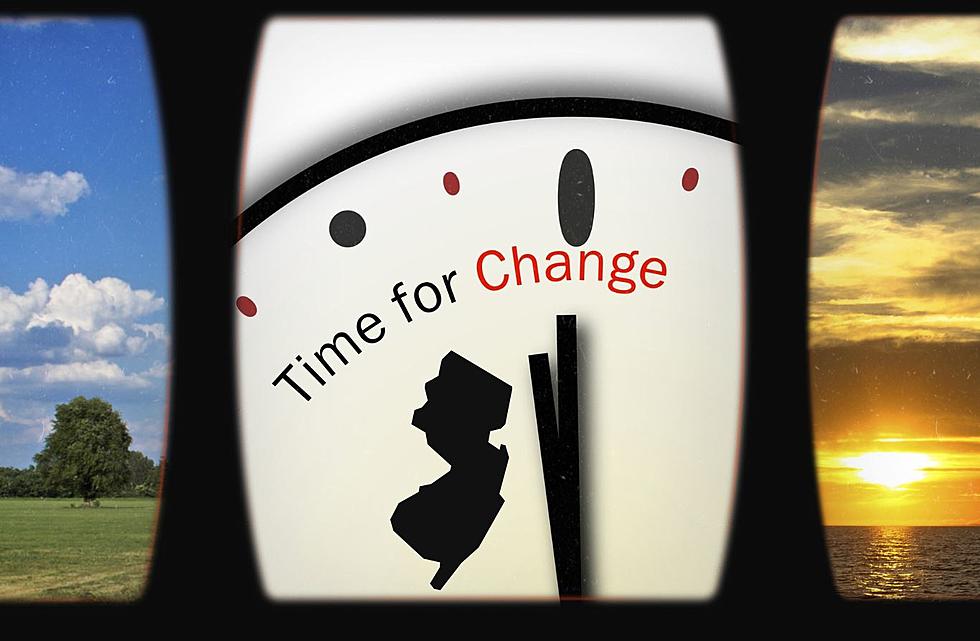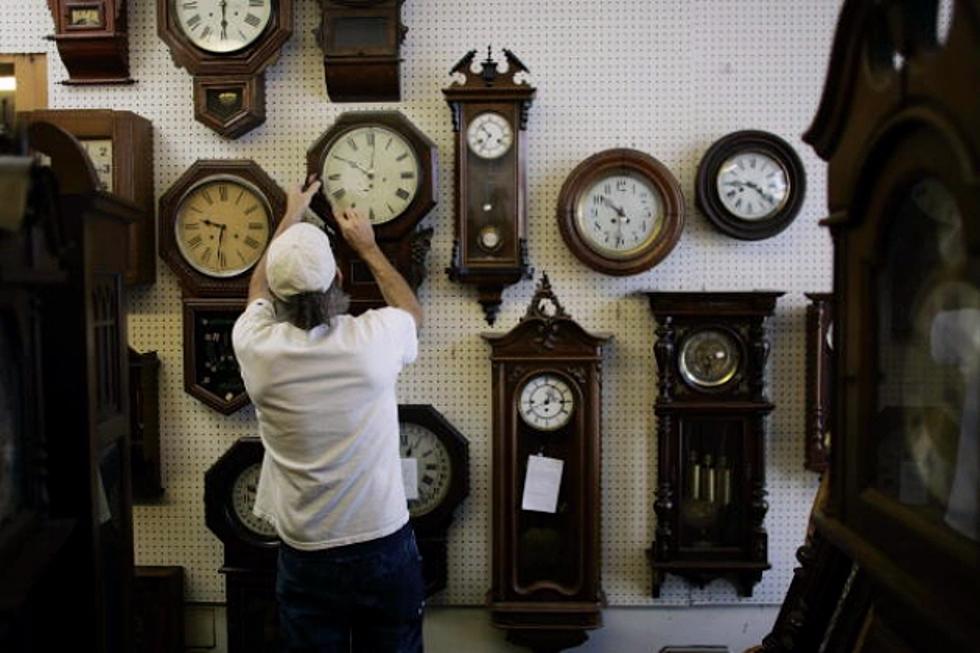
Daylight Saving in NJ: Pros and cons of keeping it year round
Those dark evenings are officially behind us in New Jersey as we finally welcomed back Daylight Saving Time. That time of year gives us a little more hope for warmer days ahead.
Every year we spring the clocks forward followed by falling back in autumn. And although the original purpose of the practice is well behind us, the tradition of changing the clocks continues all the way through today.
Now yes, there have been many debates about whether we should keep changing the clocks from Daylight Saving to Standard Time, or if we should do away with the practice altogether. And as we look ahead into 2023, it’s very possible that the clock change could become a thing of the past.
Lawmakers in our nation's Capital want to make Daylight Saving Time permanent, officially ending the chore of having to change our clocks twice a year. But is this really such a good idea?
Let’s break down a few of the pros and cons of eliminating the time change forever.
Pro for year-round Daylight Saving Time
The most obvious pro of keeping Daylight Saving Time permanent is the extra daylight in the evening.
In New Jersey, we already benefit on the longest days of the year with the sunset happening around 8:30 p.m. Not to mention how much longer it stays bright out even after the sun officially sets.
Sunrise, by contrast, happens around 5:30 in the morning, with the skies getting brighter even earlier than that. Not too bad for the longest days of the year.
Brighter evenings during winter
If Daylight Saving Time were to remain permanent, it would be most noticeable during the shortest days of the year. Just like it does in summer, our evenings would also remain brighter.
During the shortest days in December, our sunset under Standard Time occurs just after 4:30 in the afternoon. If we were to make Daylight Saving Time permanent, that sunset would shift an hour later to just after 5:30 in the evening.
Now one has to ask, does that really make much of a difference? Maybe a little, yes, but overall it’ll still be getting dark quite early no matter how you look at it.
The benefit here though has more to do with how long those darker evenings would last. We wouldn’t have to go too far into January before we really start benefiting from brighter evenings once again.
The fall and winter months, of course, are where the biggest challenges are with keeping Daylight Saving Time Permanent.
Con for year-round Daylight Saving Time
Although we benefit a little bit in the evening, we’d really be paying the price first thing in the morning. And one could argue that having darker mornings for an extended period of time would be more harmful to us as opposed to darker evenings.
Under Standard Time, the sunrise falls back as far as 7:15 a.m. in New Jersey. That alone makes it tough to get moving in the morning. If we were to make Daylight Saving Time permanent, then our sunrise would push back even farther.
Imagine not seeing the sunrise until after 8:15. Combine that with the cold and we’re looking at some very miserable mornings. In fact, daylight could arrive even later if clouds are overtaking the skies.
Dark mornings vs dark evenings
It would essentially boil down to what we could tolerate more. Would we rather put up with starting our days in the dark, or ending them in the dark?
More likely than not, having dark cold mornings would be more harmful than having dark cold evenings. More people would be fatigued hitting the roads first thing which could lead to more accidents.
And it would be very rough for schools. In fact, it wouldn’t be surprising to see schools shift their start times back to adjust for darker mornings (this idea, by the way, is currently being proposed).
It’s been discussed before even with Standard Time, so making Daylight Saving Time permanent would only further the need to implement that change for schools in New Jersey.
What about Standard Time?
We already know what standard time is like during the winter months. The bigger question is, could we adapt to that during the summer?
If Standard Time were to remain permanent, what would it look like in New Jersey? Although it most likely wouldn’t stop us when it comes to summer nightlife, it certainly would make a difference come morning.
On the longest days of the year, our sunset under Standard Time would occur somewhere around 7:30 in the evening, with the skies remaining light until after 8:00. Regardless of which time we stick with, the bright summer evenings will be here.
On the flip side, that sun would come up very early. Under Standard Time, that sun would rise above the horizon around 4:30 in the morning, starting our longest days of the year super early.
Which time is better for New Jersey?
It’s really hard to say. Standard Time is the more logical one to keep year-round, but so many out there like the benefit of having brighter evenings all year long.
Regardless of which time were to remain permanent, one thing’s for sure. We would certainly lose that consistency we have now during the morning hours. Once the clock change goes away, get ready for either very bright or very dark mornings for a good portion of the year.
The post above reflects the thoughts and observations of New Jersey 101.5 weekend host Mike Brant. Any opinions expressed are his own.
Up or down? Average property tax changes in NJ in 2022
How to protect yourself against West Nile, other mosquite-borne diseases
More From Cat Country 107.3







